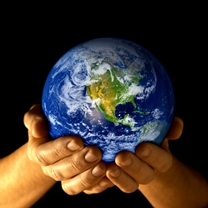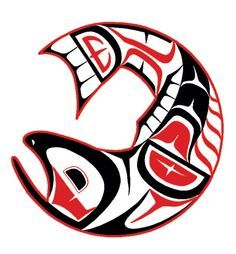2019 April Newsletter
Earth Day Observance
Earth Day was born on April 22, 1970 through the tireless efforts of Wisconsin Senator Gaylord Nelson.
It is a day held to demonstrate and promote environmental awareness and calls for the protection of our planet.
|
 |
|
The first Earth Day saw 20 million Americans take to the streets in a variety of civic gatherings: protests, demonstrations, fundraisers, nature walks, speeches, and concerts. Although the idea of Earth Day faced criticism in the beginning, it has sparked a slate of unprecedented environmental legislation. Just eight months after the first Earth Day, Richard Nixon approved the creation of a new organization tasked with monitoring the nation’s natural assets: the Environmental Protection Agency.
Although it began as an American movement, Earth Day is now an international phenomenon. Internationally, it is known as International Mother Earth Day and celebrated by more than 193 countries. Today, more than 1 billion people participate in Earth Day activities each year, making it the largest civic observance in the world. As a result of this remarkable event, various policy agreements and acts are sanctioned, such as the Clear Air Act, Clean Water Act, Endangered Species Act, and many others.
At O2Compost, we are proud to be playing a small part in the improvement and preservation of our planet Earth by encouraging the use of and teaching the art of aerated composting. The act of composting a waste product keeps it out of a landfill and creates a value-added compost product that can be used to promote plant growth.
We hope our readers will consider making changes in their behaviors (recycling, energy conservation, composting, etc.) to help make our planet a much better place to live in – not just for us, but also for coming generations. A small idea can have a huge impact over time.
|
|
Congratulations Chris!
After four years with O2Compost, we are excited to announce that Chris Moon completed his Master of Business Administration degree in February!
|
 |
|
Chris is most often the first person that you speak with when you call our office. He is the person who is responsible for reaching out to our new contacts, and he very patiently and enthusiastically answers the many questions our prospective and existing clients have about composting. Chris was instrumental in implementing our current client tracking system which, in turn, has helped facilitate our growth to where we are today.
We proudly (and sadly) say goodbye to Chris as he has found another career opportunity that he just couldn’t pass up. It was always his plan to move on once he completed his MBA, we just didn’t expect it to happen so quickly! He has been a valuable asset to O2Compost and we are grateful for the time that he spent with us.
The good news is that you will have a greater opportunity to speak directly with Peter Moon, founder and Principal Engineer with O2Compost. Peter will be your primary contact for questions, sales and technical support. Harold Ruppert, who has been with us for 17 years and now resides in Florida, will also continue to offer technical support whenever needed. And Sherri, now with us for 16 years, will continue working mostly behind the scenes on marketing and administration tasks.
We hope you will join us in wishing Chris great success at his new job, and ask that you bear with us as we adjust to his empty seat and to our new routines. We look forward to continuing our working relationship with our established clients as much as we look forward to assisting new composters who are ready take on the challenge of organic waste management around the world.
|
Sky River Fish Compost - Spring Update
In our fall newsletter I discussed the progress that we had made with the soft launch of Sky River Fish Compost in 2018. Click here to revisit that article.
Since that time we have made great progress toward our hard-launch for the 2019 spring gardening season. At this point, we have pallets of our compost in 12 nurseries and garden centers in the four county area surrounding Seattle. The good news is that our compost is selling quite well and many of the nurseries are already ordering more.
|
 |
|
How did we get to where we are today?
- First, this winter we sent out over 200 samples with explanatory literature to nurseries, landscape architects and organic landscape companies and followed up with phone calls and site visits to many of them.
- We leased booth space at the 2019 Flower and Garden Show in Seattle and met with people from all over Washington, Oregon, Idaho, and as far away as New York.
- At the 5-day Garden Show, we gave away nearly 500 samples and acquired just over 300 e-mail addresses for those people who said that they would like to receive a 2-For-1 coupon after the show.
- We sent out the 2-For-1 coupons to nearly 500 e-mail addresses, directing them to the nurseries who currently carry our compost.
How did we entice the nurseries to begin carrying Sky River Fish Compost?
- We offered pallets of compost (50 bags per pallet) at $7.50 per bag, which is a very strong price.
- We offered an additional 10 bags at no cost for a 1 pallet order – for the first order.
- We offered an additional 25 bags at no cost for a 2 pallet order – for the first order.
- We offered free delivery – for the first order.
- We found that the smaller “Mom and Pop” nurseries were more receptive to that offer than were the larger, “High Brow” nurseries.
- We stressed that our goal is to offer unsurpassed service.
What challenges have we encountered?
- Delivery! Our primary challenge is getting the pallets of compost from our production site (in the hinterlands) to the nurseries.
- As it turns out, a pallet of compost weighs nearly a ton (literally) and our delivery vehicles are both weight and space limited.
- When the nursery is 50 miles away from our production site, it means that you actually have to drive 100 miles to deliver one or two pallets. That takes time and money.
- We are working on a solution by developing a network of staging sites in several locations around the state to which we can haul 12 to 20 pallets at a time with large trailers. From these sites, we can more easily and economically deliver pallets in a timely manner.
- We are also developing a small network of drivers who can load, deliver our compost, and represent us well to the customer.
What other challenges have we encountered?
- It is one thing to receive checks for your product but it’s another thing to deposit those checks in a business bank account when you are not yet a formal business in the eyes of the state.
- We discovered that setting up a limited liability company is a relatively easy task until the attorneys get involved. And we learned that attorneys (and accountants) are there for a reason – to help us through the paperwork to create a legitimate business, to keep us out of trouble, and to establish clear written agreements between the partners.
- Selling compost is very much a seasonal business and it’s true what “they” say – it takes at least three years to launch a new product.
- You don’t make money with your first sale. The net money from sales needs to be reinvested in the expansion of the business. Financially, it takes staying power.
Aside from nurseries, where are the opportunities to sell more compost?
At this point we see two additional niches for Sky River Fish Compost:
- Bulk sales to marijuana growers in western Washington; and
- Bulk and bagged sales to organic landscape companies for both installation and maintenance.
What recommendations would you offer to those who might be interested in selling their compost?
- Start with a Pilot Project and learn by doing. If it turns out that you don’t like it – don’t do it.
- “Think Big, Start Small, and Grow in Planned Increments”.
- Keep your focus first on product quality and second on customer service. Don’t worry about your completion – there is plenty of room for quality compost.
Knowing what I know now, would I do it again? ABSOLUTELY!!
More importantly, are we still having fun? Yes, indeed we are.
|
Frequently Asked Question
QUESTION: "What is the optimum temperature for my compost pile?"
ANSWER: You want to make sure the pile reaches 131 degrees F for three days. Based on USDA and most state standards, this assures that pathogens have been destroyed. After that is achieved, you want to keep the biology as active as possible for as long as possible. Usually, the limitation is the availability of nitrogen, but sometimes biological activity drops off due to lack of oxygen, lack of water, or lack of available carbon. In general, you want to keep the temperature above 130 degrees F for about three weeks. It would be good to keep it below 150 degrees F, but no harm is done if it reaches 160 degrees F. Avoid 170 degrees F and higher.
110-120 F: Too low
130-150 F: Perfect
160-170 F: Add a little more air on-time, and possibly water.
170 F: Too HOT! Please contact us.
New Systems Come Online